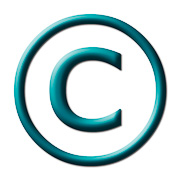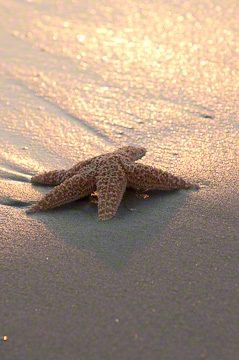Updated January 20, 2012

As you read this blog, know that as of Friday late morning, east-coast time on January 20, 2012, the votes on both SOPA and PIPA were tabled for the nonce. Read the announcements at the end of this post.
SOPA? PIPA? We’ve heard a lot about them in the news, but how does it affect us mere photographers and creators? And I’m not talking about BIG business such as the Time-Warners, Rupert Murdochs, and others who have had a checkered history of respecting the copyrights of small entities.
SOPA stands for Stop Online Piracy Act, the US House of Representatives’ bill, while the US Senate’s PIPA refers to Preventing Real Online Threats To Economic Creativity and Theft of Intellectual Property Act of 2011 — only the government could come up with a name that unwieldy — or the easier-to-remember Protect IP Act.
They sound good on the surface. And yes, there is no question that the Internet has made it so easy to steal the creative property of others. Who could argue that protecting everyone’s copyright by going after those who allow it is a bad thing? It really isn’t so black and white; rather, it depends upon what the legislation involves. Already changes have been made to the two proposed bills in response to the hue and cry from many.
Various large websites, including Wikipedia, blacked out for the day on January 18, 2012 in protest of these proposed bills. Others feared that government might gain too much control, much as in China, and infringe on freedom of speech.
Frank James summed up the two sides of the issue succinctly in the third and fourth paragraphs of his January 18, 2012 NPR blog, referred to in this blog by permission of NPR.
PC World also wrote an even-handed article on what these two proposed bills mean. I could find no permissions link from this article, so I must assume that it is alright to link to the article.
First, we need to remember that there are already powerful laws in place to protect our copyright. The main problem is in effectively and affordably being able to take advantage of the protection the US Copyright Office gives us creators.
The other issue is the fact that many of our Internet bases are offshore and therefore beyond our reach. Any new laws are quite simply not going to affect them. We already know that China has no respect for our copyright laws. They, however, are not alone. We can’t change them. We can only effectively deal with what is within our legal reach. That is reality, like it or not.
Alas, many of us feel that these bills are designed to protect BIG business, not us individual creators. BIG Business has BIG corporate lawyers who can sift through all the ins and outs of dealing with the ramifications of these bills and go after infringers of copyrighted material. We mere photographers, writers, painters, etc. are generally not endowed with deep pockets, and thus, there is probably no way we could afford to work within the parameters of these proposed bills as currently written, especially if the infringers happen to be BIG Business.
 Some of you read my blog on © Is for Copyright, in which a major stock agency had several instances of look-alike copies of Arnie’s photograph at the right. They claimed the photographs they were marketing were distinctly different from Arnie’s, but when we pointed out that the image was copyrighted, the photographs on their website quietly but blazingly quickly disappeared. We were lucky, as there is no way we could have afforded the time, effort, and money up front to fight a case against such an entity with financial resources far beyond what individual creators could battle.
Some of you read my blog on © Is for Copyright, in which a major stock agency had several instances of look-alike copies of Arnie’s photograph at the right. They claimed the photographs they were marketing were distinctly different from Arnie’s, but when we pointed out that the image was copyrighted, the photographs on their website quietly but blazingly quickly disappeared. We were lucky, as there is no way we could have afforded the time, effort, and money up front to fight a case against such an entity with financial resources far beyond what individual creators could battle.
As you read in the links above, these proposed bills, if enacted, could also create Internet mayhem and not address what we individual creators need.
I see a much simpler approach, one that addresses the concerns of both large and small businesses, one that I suggested to my Congressman and Senators who appreciated, by the way, constructive suggestions instead of simply the Don’t Support This in Its Current Version blast.
- 1. After someone files a complaint as provided through DCMA (Digital Millennium Copyright Act) with solid proof of copyright ownership of the item(s) in question, the hosting website would have to contact the alleged infringer and notify him/her of the allegations within a short period of time of having received the DCMA and give the infringer a limited amount of time to respond and appeal with solid proof of permission to use the material(s). If the infringer does not do that, then the hosting website would be compelled to ban the alleged infringer from said website for a significant number of years, but not forever.
 For example, some of you read about Arnie’s image that was stolen in the spring of 2011. The infringer in our opinion should have been banned from the Zenfolio site. According to the parameters of the two proposed laws, however, Zenfolio would have to be shut down. That isn’t fair to the many ethical photographers who have portfolios of nothing but their own work on that site.
For example, some of you read about Arnie’s image that was stolen in the spring of 2011. The infringer in our opinion should have been banned from the Zenfolio site. According to the parameters of the two proposed laws, however, Zenfolio would have to be shut down. That isn’t fair to the many ethical photographers who have portfolios of nothing but their own work on that site.
For those who complain about such stringent measures, it should be noted that you don’t go out and steal a car without expecting punishment! Check out my blog Copyright Infringement Is Theft.
2. Websites that accept posted work of others should clearly lay out the parameters of being part of that website, stating the penalties for not adhering to those parameters, i.e. that anyone who infringes on the copyright of others will be banned from the site for a period of time, say, five years.
3. If the hosting website does not follow the directives in 1., it would be fined an appreciable amount of money, say $50,000-100,000 per incident.
The amount is only an example, not a suggested amount. The idea is to fine the offending websites enough so that they will think twice about disrespecting intellectual property issues in the future.
So, if we are going to end up with something that actually helps us protect our copyright from not only Internet thieves but from some BIG Business entities, we need to write our representatives in the Congress and Senate. Offer possible alternatives instead of just nay-saying. Your views will have so much more impact. We all need to have the tools to protect our copyright, and in spite of the me-first-then-you attitude common today, realistically, it has to work for all businesses, regardless of size.
Now, to the announcements of Friday, January 20, 2012 …
From Senate Majority Leader Harry M. Reid (D-Nev.), strong supporter of PIPA, in a rare stepping back from an issue:
-
“In light of recent events, I have decided to postpone Tuesday’s vote on the PROTECT I.P. Act.
“There is no reason that the legitimate issues raised by many about this bill cannot be resolved. Counterfeiting and piracy cost the American economy billions of dollars and thousands of jobs each year, with the movie industry alone supporting over 2.2 million jobs. We must take action to stop these illegal practices. We live in a country where people rightfully expect to be fairly compensated for a day’s work, whether that person is a miner in the high desert of Nevada, an independent band in New York City, or a union worker on the back lots of a California movie studio.
“I admire the work that Chairman Leahy has put into this bill. I encourage him to continue engaging with all stakeholders to forge a balance between protecting Americans’ intellectual property, and maintaining openness and innovation on the internet. We made good progress through the discussions we’ve held in recent days, and I am optimistic that we can reach a compromise in the coming weeks.”
And minutes later, from House Judiciary Committee Chairman Lamar Smith (R-Tex.), author of the Stop Online Piracy Act (SOPA):
- “I have heard from the critics and I take seriously their concerns regarding proposed legislation to address the problem of online piracy. It is clear that we need to revisit the approach on how best to address the problem of foreign thieves that steal and sell American inventions and products.
“The problem of online piracy is too big to ignore. American intellectual property industries provide 19 million high-paying jobs and account for more than 60 percent of U.S. exports. The theft of America’s intellectual property costs the U.S. economy more than $100 billion annually and results in the loss of thousands of American jobs. Congress cannot stand by and do nothing while American innovators and job creators are under attack.
“The online theft of American intellectual property is no different than the theft of products from a store. It is illegal and the law should be enforced both in the store and online.
“The Committee will continue work with both copyright owners and Internet companies to develop proposals that combat online piracy and protect America’s intellectual property. We welcome input from all organizations and individuals who have an honest difference of opinion about how best to address this widespread problem. The Committee remains committed to finding a solution to the problem of online piracy that protects American intellectual property and innovation.”
This issue is not going to go away. There are too many big guns that want it, and realistically, something needs to be done to effectively discourage online piracy, but as noted above before the recent announcements, any legislation has to work for us small-business creators, not just the major corporations. So still contact your representatives in DC with suggestions on how to make this work. Our voices will be heard, to wit the recent announcements above.
For more information on our workshops, go to Barefoot Contessa Photo Adventures.
We also hope you will check out these links:
Margo, it would be so-o-o refreshing if our elected representatives had such a logical, simple and useful approach to legislating as you do on this complex problem! Your advantage, I think, is that you live the issue as a part of your life; too many congresspeople and senators unfortunately are way too removed from the problems they say they are trying to solve. I’ve been thinking also about how we might combat piracy without censoring the web, but couldn’t come up with anything logical. Thanks for contributing your sane ideas to the discussion.
Mary,
I think you hit in on the nail head. As I so often say, I think life would be a lot different in government if our elected representatives had to actually live by the very laws they perpetrate, and I do use that verb advisedly!
My solution may not be quite on the mark, but I suspect it is not that far off either. Both sides have to be satisfied, and it seems to be to be a possible starting point for a dialogue across the political aisle.
Thanks for writing, and thanks for your nice input.
Take care,
TBC